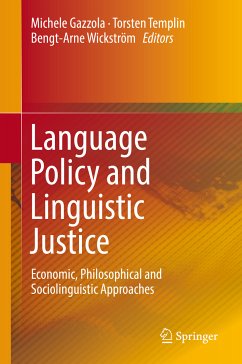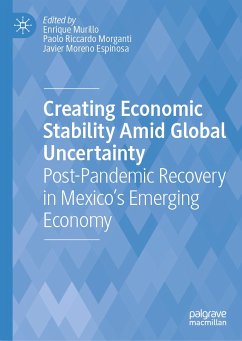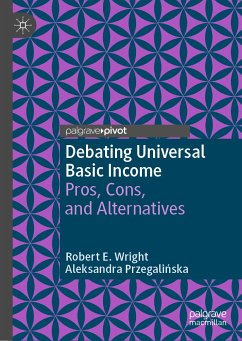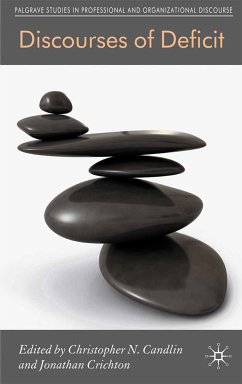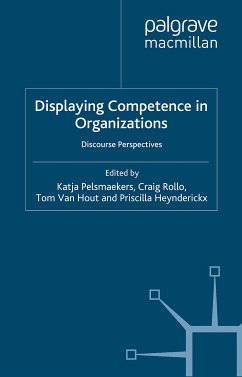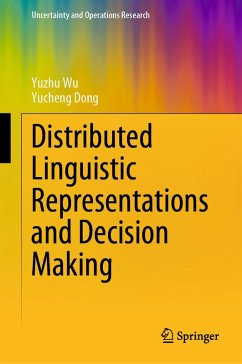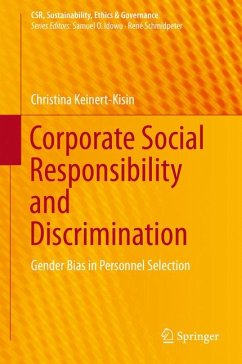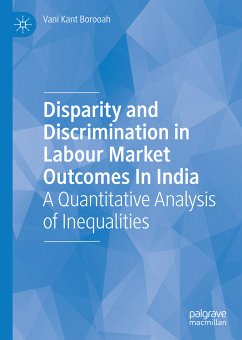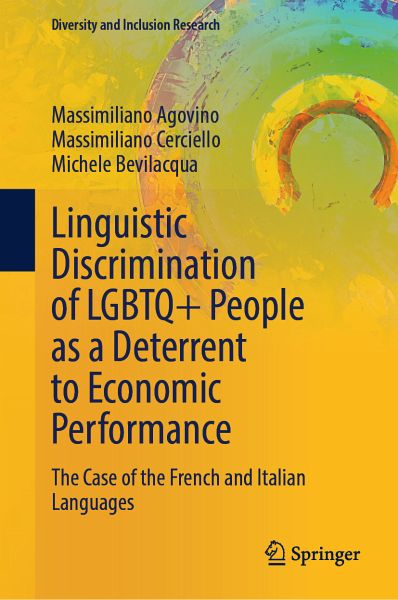
Linguistic Discrimination of LGBTQ+ People as a Deterrent to Economic Performance (eBook, PDF)
The Case of the French and Italian Languages
Versandkostenfrei!
Sofort per Download lieferbar
88,95 €
inkl. MwSt.
Weitere Ausgaben:

PAYBACK Punkte
44 °P sammeln!
This book explores the adverse economic effects of discriminatory language against LGBTQ+ people. The case studies under investigation are represented by the French and the Italian language, both boasting vast arrays of slurs employed to denote negatively the members of the LGBTQ+ community. Looking at the relative frequencies of slurs over time, the analysis proposed measures the extent of linguistic discrimination. Subsequently, the book identifies the negative impact of discrimination on economic performance in France and Italy in the long run. Slurs impose a psychological cost on the membe...
This book explores the adverse economic effects of discriminatory language against LGBTQ+ people. The case studies under investigation are represented by the French and the Italian language, both boasting vast arrays of slurs employed to denote negatively the members of the LGBTQ+ community. Looking at the relative frequencies of slurs over time, the analysis proposed measures the extent of linguistic discrimination. Subsequently, the book identifies the negative impact of discrimination on economic performance in France and Italy in the long run. Slurs impose a psychological cost on the members of the LGBTQ+ community, who become as a result less productive in the workplace. Ultimately, slurs affect overall economic performance and reduce economic growth at the national level.
This book stresses the role of inefficiencies associated with discrimination against LGBTQ+ individuals in various spheres of life, with a particular focus on their economic consequences. Discriminatory language thus emerges not only as a negative phenomenon per se, but also as an obstacle to economic growth. This work draws elements from different disciplines and the results it obtains may prove appealing to scholars of economics, linguistics and gender studies, as well as to policymakers seeking to overcome social exclusion while stimulating economic performance.
This book stresses the role of inefficiencies associated with discrimination against LGBTQ+ individuals in various spheres of life, with a particular focus on their economic consequences. Discriminatory language thus emerges not only as a negative phenomenon per se, but also as an obstacle to economic growth. This work draws elements from different disciplines and the results it obtains may prove appealing to scholars of economics, linguistics and gender studies, as well as to policymakers seeking to overcome social exclusion while stimulating economic performance.
Dieser Download kann aus rechtlichen Gründen nur mit Rechnungsadresse in A, B, BG, CY, CZ, D, DK, EW, E, FIN, F, GR, HR, H, IRL, I, LT, L, LR, M, NL, PL, P, R, S, SLO, SK ausgeliefert werden.



